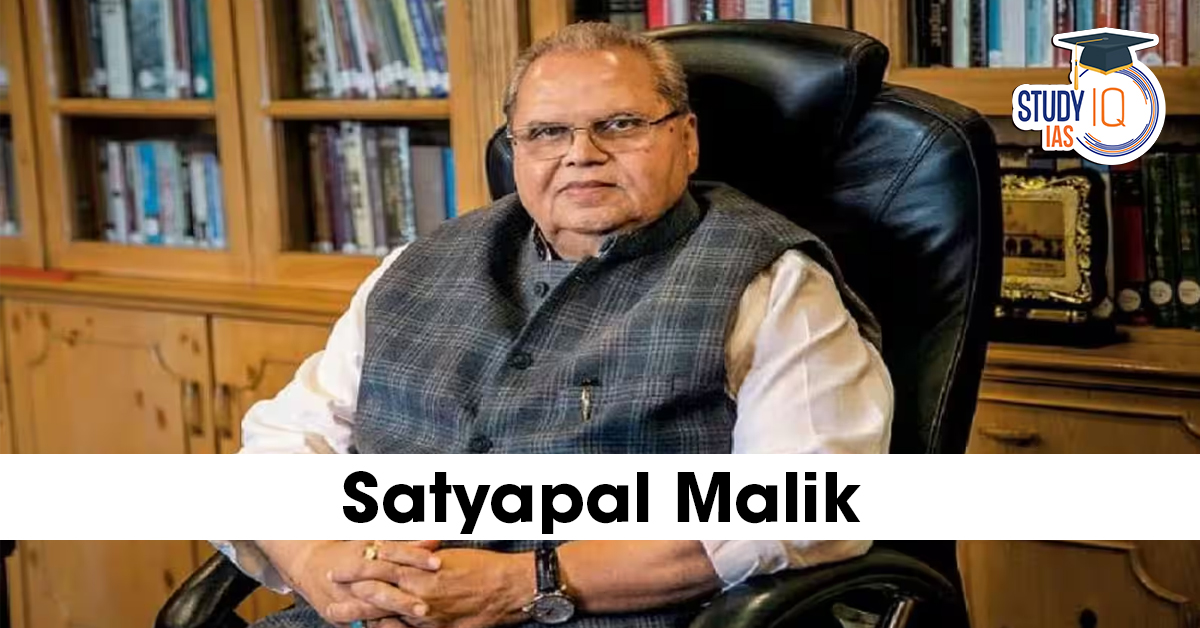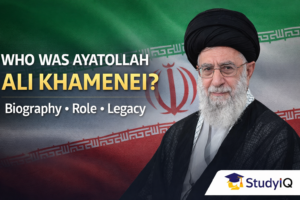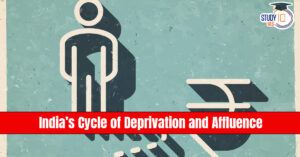Table of Contents
Former Jammu & Kashmir Governor Satya Pal Malik died on August 5, 2025. He was 79 years old when he died in Dr. Ram Manohar Lohia Hospital, New Delhi. He was fighting a severe urinary tract infection and kidney failure since May 2025. Malik, who was famously known for his no-holds-barred attitude and outspoken political positions, was a prominent face in Indian politics, particularly when Article 370 was scrapped in Jammu and Kashmir.
Satya Pal Malik Passes Away at 79
Veteran political leader and former Governor Satya Pal Malik died at 79 on August 4, 2025, in New Delhi. For his frank views and direct participation in national politics, Malik’s death ended an important era in Indian public life. Malik was the Governor of several states, including Jammu & Kashmir when Article 370 was revoked in 2019, the crucial time.
Malik was not simply a ceremonial president; he also took on important administrative positions, particularly in his stints in Jammu & Kashmir, Goa, Bihar, and Meghalaya. A member of different political parties during the course of his career—from the Janata Dal to the BJP—he had an independent voice at all times.
His vocal opinions about government policies, especially concerning farmers’ affairs and the governance of India, usually attracted the country’s attention. Political leaders on either side have sent their condolences and recalled his contributions to Indian political affairs.
Satya Pal Malik Biography
Satya Pal Malik, a seasoned Indian politician, left his iconic signature on Indian politics through his prolonged service in different important positions. From being a Member of Parliament to being the Governor of several states including Jammu and Kashmir at a sensitive time, his life as a politician was marked by unapologetic views and dedication to democratic principles. Famed for his candid utterances and independent nature, Malik was in the limelight most of the time for questioning central policies, particularly when he held office in J&K. His political career was a mix of experience and integrity.
| Attribute | Details |
|---|---|
| Full Name | Satya Pal Malik |
| Date of Birth | 24 July 1946 |
| Place of Birth | Hisawada, Baghpat district, Uttar Pradesh, India |
| Date of Death | 4 August 2025 |
| Age at Death | 79 Years |
| Education | B.Sc and LLB from Meerut College; Diploma in Parliamentary Affairs |
| Political Affiliation(s) | Bharatiya Kranti Dal, Janata Dal, BJP (formerly), later Independent |
| Profession | Politician, Advocate |
| Key Positions Held | MP (Rajya Sabha & Lok Sabha), Governor (Bihar, J&K, Goa, Meghalaya) |
| Notable Events | Governor of J&K during abrogation of Article 370 |
| Known For | Bold criticism of central government policies, especially farm laws |
| Family | Married with two children |
| Legacy | Remembered as a fearless, outspoken leader with a deep understanding of rural India |
Satya Pal Malik: Political Career Overview
Indian National Congress
-
Joined Congress in the 1980s.
-
Served as General Secretary of the Uttar Pradesh Congress Committee.
-
Elected to the Rajya Sabha in 1980.
-
Quit Congress in 1987 over the Bofors scandal.
Jan Morcha & Janata Dal
-
Became one of the founders of Jan Morcha, which later merged into Janata Dal in 1988.
-
Contested Lok Sabha elections multiple times from Aligarh, Baghpat, and Meerut constituencies.
Bharatiya Janata Party (BJP)
-
Joined the BJP in 2004.
-
Rose to become National Vice-President in 2012.
-
Was part of PM Modi’s core campaign team for the 2014 Lok Sabha Elections.
Governor Roles: A Crucial Administrative Chapter
Satya Pal Malik served as Governor of four states and one Union Territory, becoming one of the few politicians to hold such a diverse constitutional portfolio.
| State/UT | Designation | Tenure |
|---|---|---|
| Bihar | Governor | Sept 2017 – Aug 2018 |
| Jammu & Kashmir | Governor | Aug 2018 – Oct 2019 |
| Goa | Governor | Oct 2019 – Aug 2020 |
| Meghalaya | Governor | Aug 2020 – Oct 4, 2022 |
-
On August 5, 2019, during his tenure as Governor of J&K, Article 370 was abrogated, ending the region’s special status.
-
This marked a historic constitutional and political shift, resulting in the bifurcation of J&K into two Union Territories: Jammu & Kashmir and Ladakh.
-
Malik oversaw:
-
Law and order deployment
-
Administrative transition
-
Security and communication clampdowns
-
Despite the political weight of the move, Malik maintained a calm public demeanor, ensuring minimal unrest.
Later Years and Outspoken Criticism
After retiring as Meghalaya Governor in October 2022, Malik became an unfiltered critic of the Modi government—especially on:
-
The Pulwama Terror Attack (2019) – he alleged intelligence failure and administrative lapses.
-
The Kiru Hydropower Project – he raised corruption allegations.
-
The Farmers’ Protest (2020–21) – Malik emerged as a strong voice in favor of farmers, warning the government about ignoring their demands.
His candor won him praise across party lines, and criticism from BJP loyalists. However, he remained unfazed, emphasizing that truth must come before party loyalty.
Health, Hospitalization, and Death
-
Hospitalized: May 2025 at Dr. Ram Manohar Lohia Hospital, New Delhi
-
Condition: Suffered from urinary tract infection and advanced kidney failure
-
ICU Care: He remained critical for weeks under observation
-
Demise: Passed away on August 5, 2025, at approximately 1:00 PM
His death was confirmed by his aide Kanwar Singh Rana, who stated that Malik remained “conscious of the nation’s direction till his final days.”
Tributes and National Response
-
PM Narendra Modi expressed grief and acknowledged Malik’s contribution to public life.
-
Opposition leaders and farmers’ unions lauded his moral courage and constitutional clarity.
-
Public intellectuals, students, and activists remembered him as “the last honest Governor”.
Legacy: What Satya Pal Malik Will Be Remembered For
-
Oversaw Article 370 rollback, one of India’s biggest constitutional changes
-
Maintained integrity across changing political parties
-
Spoke truth to power without fear or favor
-
Stood firmly with farmers, even at the cost of political capital
-
Defended democratic principles, even when politically inconvenient


 World Wildlife Day 2026: Theme, Signific...
World Wildlife Day 2026: Theme, Signific...
 Who Was Ayatollah Ali Khamenei? Biograph...
Who Was Ayatollah Ali Khamenei? Biograph...
 The Cycle of Deprivation and Affluence
The Cycle of Deprivation and Affluence




















